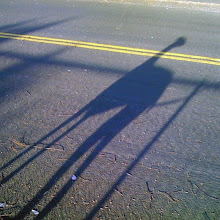Adding Up to Nothing
Average incomes after adjusting for inflation actually fell from 2001 to 2004, and the growth in net worth was the weakest in a decade, the Federal Reserve reported Thursday.
[...]
Net worth, the difference between assets and liabilities such as loans, rose by 6.3 percent in the 2001-2004 period to an average of $448,200, after adjusting for inflation. That gain was far below the huge increases of 25.6 percent from 1995 to 1998 and 28.7 percent from 1998 to 2001, increases that were fueled by soaring stock prices.
The 2001-2004 performance was the worst since net worth actually declined by 9.9 percent in the 1989-1992 period.
It's merely a coincidence that the person running our country during that last bad economic spell just happens to be the father of the current president.
The median family net worth, the point where half the families owned more and half owned less, stood at $93,100 in 2004, a rise of 1.5 percent after adjusting for inflation from 2001.
The report showed that the slowdown in the accumulation of net worth would have been even more sizable except for the fact that homeowners have enjoyed big gains in the value of their homes in recent years.
Such encouraging news for anyone worried that the housing boom might go bust soon.
The gap between the very wealthy and other income groups widened during the period.
The top 10 percent of households saw their net worth rise by 6.1 percent to an average of $3.11 million while the bottom 25 percent suffered a decline from a net worth in which their assets equaled their liabilities in 2001 to owing $1,400 more than their total assets in 2004.
"This is the continuing story of the rich getting richer," said David Wyss, chief economist at Standard & Poor's in New York. "Clearly, the gains in wealth are going to the top end."
But a quote like that discounts that only the wealthy do anything to get wealthier (like firing employees to make more profit)--the poor are too busy working three jobs just to, well, the statistics suggest not even staying even. And the poor never hire anyone to fire in the first place, so truly are a drag on an economy.
Meanwhile that USA Today article says:
In 1981, a student could work full time all summer at minimum wage and earn about two-thirds of annual college costs, according to an analysis by Heather Boushey, economist for the Center for Economic and Policy Research. Today, a student earning minimum wage would have to work full time for a year to afford one year of education at a four-year public university - and that assumes she saves every penny, Boushey concluded.
If only scientists could invent a way for people to work fulltime while being cryogenically frozen, so you could just stack them up and not feed them when they weren't on the job. Sounds like the next Bush plan now that he's got the mission to Mars and plug-in-the-battery cars (since the electricity one has in one's house is magically created) out of the way.
Also contributing to a rise in debt: a sharp drop in direct aid. Congress hasn't increased the Pell Grant, the most common direct aid for low-income students, since 2003. The maximum Pell Grant: $4,050 a year.
"The Pell Grant isn't even keeping up with inflation, let alone college costs," says Luke Swarthout of the Public Interest Research Group. Students have to borrow more to make up the gap between direct aid and the amount their families can afford to contribute, he says.
As a result, low-income students are carrying a disproportionate amount of student debt, says Shireman of the Project on Student Debt. Shireman analyzed loans held by Pell Grant recipients because those students are from low-income families.
See, those poor causing problems again.
Nickalous Reykdal,22, an education major at Central Washington University, says all his friends have student loans and predicts that the higher rates will force many future graduates to spend years paying off their debts. "Their student loans will double by the time they pay them off, just on interest alone," he says. "It makes me really worry about the future."
The good news for all of them is the U.S. won't have any debt in the future, so at least the bigger economic picture will be rosy. Not that they will have time to think about such things as they'll all be working three jobs. If they can find three jobs.


0 Comments:
Post a Comment
<< Home